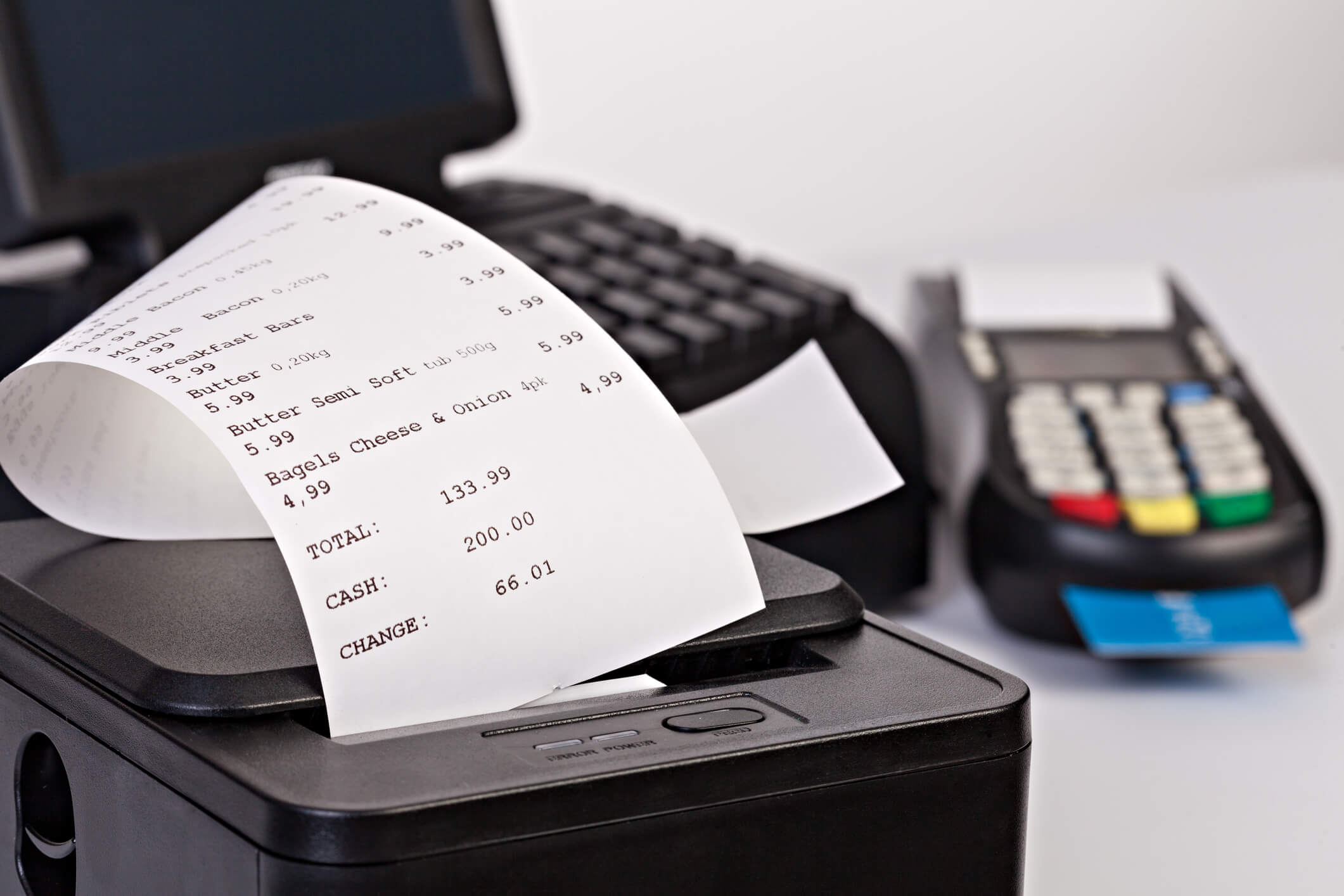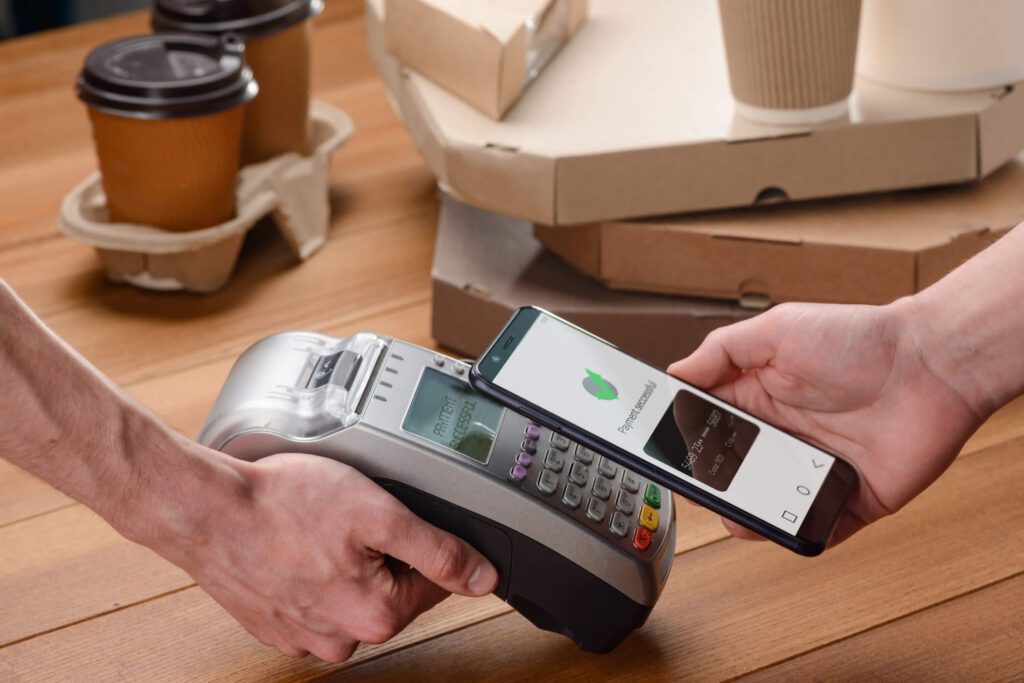
By Harriet Forster July 10, 2024
In today’s fast-paced business environment, having an efficient and reliable point of sale (POS) system is crucial for the success of any retail or hospitality establishment. A POS system not only helps streamline operations but also enhances efficiency, increases sales, and improves the overall customer experience. However, with a plethora of options available in the market, choosing the best POS system for your business can be a daunting task.
This comprehensive guide will walk you through the process of selecting the right point of sale system by understanding its importance, considering various factors, exploring different types, and identifying top features to look for.
Understanding the Importance of a Point of Sale System for Your Business
A POS system serves as the central hub for all transactions and operations within a business. It not only handles sales but also manages inventory, tracks customer data, and provides valuable insights through reporting and analytics. By automating these processes, a point of sale system helps streamline operations and enhance efficiency, ultimately leading to increased profitability.
Streamlining Operations and Enhancing Efficiency with a POS System
One of the primary benefits of a POS system is its ability to streamline operations. With features like barcode scanning, inventory management, and automated sales reporting, a point of sale system eliminates the need for manual data entry and reduces the chances of human error. This not only saves time but also improves accuracy, allowing businesses to focus on more important tasks.
Furthermore, a point of sale system can also help improve efficiency by automating repetitive tasks such as order processing, payment processing, and customer data management. This frees up valuable time for employees to focus on providing better customer service and engaging in more strategic activities.
Increasing Sales and Improving Customer Experience with a POS System
A well-designed point of sale system can significantly impact sales and customer experience. By providing real-time inventory information, a POS system enables businesses to avoid stockouts and ensure that popular items are always available. This not only increases sales but also enhances customer satisfaction by reducing wait times and improving order accuracy.
Additionally, a point of sale system can also integrate with customer relationship management (CRM) tools, allowing businesses to track customer preferences, purchase history, and loyalty programs. This valuable data can be used to personalize marketing efforts, offer targeted promotions, and provide a more personalized shopping experience, ultimately leading to increased customer loyalty and repeat business.
Factors to Consider When Choosing a POS System
When selecting a point of sale system for your business, it is essential to consider various factors to ensure that it meets your specific needs and goals. These factors include identifying your business needs and goals, assessing the scalability and flexibility of the point of sale system, evaluating the user interface and ease of use, analyzing integration capabilities with other business systems, and considering the cost and return on investment.
Identifying Your Business Needs and Goals
Before diving into the selection process, it is crucial to identify your business needs and goals. Consider the size and type of your business, the number of locations, the volume of transactions, and any specific requirements unique to your industry. This will help you narrow down your options and choose a POS system that aligns with your specific needs.
Assessing the Scalability and Flexibility of the POS System
As your business grows, it is essential to choose a POS system that can scale with your needs. Consider factors such as the number of users, the ability to add new locations, and the capacity to handle increased transaction volumes. Additionally, ensure that the point of sale system is flexible enough to accommodate any future changes or upgrades in your business processes.
Evaluating the User Interface and Ease of Use
A user-friendly interface is crucial for the successful adoption and utilization of a point of sale system. Look for a system that is intuitive, easy to navigate, and requires minimal training for your staff. Consider factors such as touchscreen capabilities, customizable layouts, and the availability of shortcut keys to streamline operations and improve efficiency.
Analyzing Integration Capabilities with Other Business Systems
In today’s interconnected business environment, it is essential to choose a point of sale system that can seamlessly integrate with other business systems such as accounting software, inventory management tools, and e-commerce platforms. This integration allows for real-time data synchronization, eliminates manual data entry, and provides a holistic view of your business operations.
Considering the Cost and Return on Investment
While cost is an important consideration, it should not be the sole determining factor when choosing a POS system. Consider the total cost of ownership, including hardware, software, licensing fees, maintenance, and support. Additionally, evaluate the potential return on investment by considering factors such as increased efficiency, reduced labor costs, and improved customer satisfaction.
Exploring Different Types of Point of Sale Systems
POS systems come in various types, each with its own set of features and benefits. Understanding the different types can help you choose the one that best suits your business needs. The four main types of POS systems are traditional on-premise systems, cloud-based systems, mobile point of sale systems, and self-service kiosk point of sale systems.
Traditional On-Premise POS Systems
Traditional on-premise point of sale systems are installed locally on your business premises and require dedicated hardware and servers. These systems offer robust functionality and are highly customizable to meet specific business requirements. However, they often require a significant upfront investment and ongoing maintenance costs.
Cloud-Based POS Systems

Cloud-based POS systems, also known as Software-as-a-Service (SaaS) solutions, are hosted on remote servers and accessed through the internet. These systems offer flexibility, scalability, and remote access, making them ideal for businesses with multiple locations or those that require mobility. Cloud-based systems also eliminate the need for local servers and reduce upfront costs.
Mobile POS Systems

Mobile POS systems leverage smartphones or tablets as the primary hardware for processing transactions. These systems are ideal for businesses that require mobility, such as food trucks, pop-up shops, or event-based businesses. Mobile point of sale systems offer flexibility, ease of use, and the ability to accept payments on the go.
Self-Service Kiosk POS Systems
Self-service kiosk point of sale systems allow customers to place orders, make payments, and complete transactions independently. These systems are commonly used in quick-service restaurants, cinemas, and retail stores. Self-service kiosks not only improve efficiency by reducing wait times but also provide an interactive and engaging customer experience.
Top Features to Look for in a POS System
When choosing a POS system, it is essential to consider the features that will best support your business operations. While the specific requirements may vary depending on your industry and business model, there are several key features that are universally beneficial. These include inventory management and tracking, sales reporting and analytics, customer relationship management (CRM) tools, payment processing options, and security and data protection.
Inventory Management and Tracking
Effective inventory management is crucial for any business to avoid stockouts, reduce carrying costs, and optimize ordering. Look for a point of sale system that offers real-time inventory tracking, automated reordering, and the ability to set low stock alerts. Additionally, consider features such as barcode scanning, serial number tracking, and batch management for enhanced inventory control.
Sales Reporting and Analytics
Sales reporting and analytics provide valuable insights into your business performance, allowing you to make data-driven decisions. Look for a point of sale system that offers comprehensive reporting capabilities, including sales by product, sales by employee, and sales by location. Additionally, consider features such as customizable dashboards, real-time data updates, and the ability to export data for further analysis.
Customer Relationship Management (CRM) Tools
A POS system with built-in CRM tools can help you build and maintain strong customer relationships. Look for features such as customer profiles, purchase history tracking, and loyalty program management. Additionally, consider the ability to send targeted promotions, personalized offers, and automated email marketing campaigns to enhance customer engagement and loyalty.
Payment Processing Options
A POS system should offer a wide range of payment processing options to cater to the preferences of your customers. Look for a system that supports various payment methods, including credit cards, debit cards, mobile payments, and contactless payments. Additionally, consider features such as split payments, partial payments, and the ability to process refunds or exchanges seamlessly.
Security and Data Protection
Protecting customer data and ensuring secure transactions is of utmost importance in today’s digital landscape. Look for a POS system that complies with industry standards and offers robust security measures such as encryption, tokenization, and secure data storage. Additionally, consider features such as user access controls, audit trails, and the ability to generate secure transaction receipts.
Frequently Asked Questions
Q.1: What is a POS system, and why do I need one for my business?
A point of sale system is a software and hardware solution that allows businesses to process transactions, manage inventory, track sales, and analyze data. It serves as the central hub for all retail or hospitality operations. A POS system is essential for businesses as it helps streamline operations, enhance efficiency, increase sales, and improve the overall customer experience.
Q.2: How much does a POS system typically cost?
The cost of a point of sale system can vary depending on factors such as the type of system, the number of users, and the specific requirements of your business. Traditional on-premise systems often require a significant upfront investment, while cloud-based systems typically have a monthly subscription fee. It is essential to consider the total cost of ownership, including hardware, software, licensing fees, maintenance, and support.
Q.3: Can I integrate a POS system with my existing business software?
Many POS systems offer integration capabilities with other business software such as accounting software, inventory management tools, and e-commerce platforms. This integration allows for real-time data synchronization, eliminates manual data entry, and provides a holistic view of your business operations. It is important to choose a point of sale system that offers seamless integration with your existing software to ensure efficient and accurate data management.
Q.4: What are the security measures in place to protect customer data?
Protecting customer data is a top priority for any business. Point of sale systems employ various security measures to ensure the safety of customer information. These measures include encryption, tokenization, secure data storage, user access controls, and audit trails. It is important to choose a POS system that complies with industry standards and offers robust security features to protect customer data and ensure secure transactions.
Q.5: Can a POS system help me manage inventory efficiently?
Yes, a POS system can significantly improve inventory management and tracking. With features such as real-time inventory tracking, automated reordering, and low stock alerts, a point of sale system helps businesses avoid stockouts, reduce carrying costs, and optimize ordering. Additionally, features such as barcode scanning, serial number tracking, and batch management enhance inventory control and accuracy.
Conclusion
Choosing the best POS system for your business is a critical decision that can significantly impact your operations, sales, and customer experience. By understanding the importance of a point of sale system, considering various factors, exploring different types, and identifying top features, you can make an informed decision that aligns with your business needs and goals.
Remember to assess your specific requirements, evaluate scalability and flexibility, prioritize user interface and ease of use, analyze integration capabilities, and consider the cost and return on investment. With the right POS system in place, you can streamline operations, enhance efficiency, increase sales, and provide an exceptional customer experience.